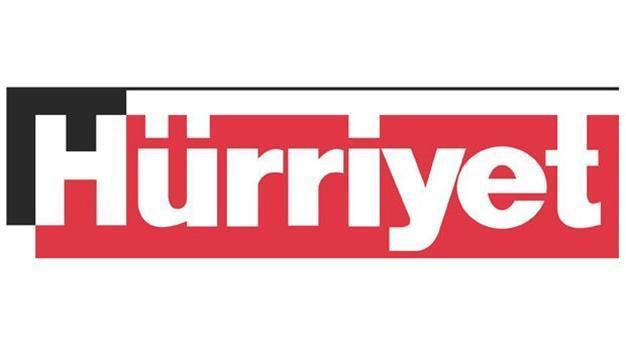Banning journalism
 Daily Hürriyet, which has been published for 67 years, was confronted with a ban by Prime Minister Professor Ahmet Davutoğlu on April 1. Upon Davutoğlu’s instructions, the Prime Ministry’s bodyguards prevented our correspondents from working at the funeral ceremony of Prosecutor Mehmet Selim Kiraz, who was martyred by terrorists.
Daily Hürriyet, which has been published for 67 years, was confronted with a ban by Prime Minister Professor Ahmet Davutoğlu on April 1. Upon Davutoğlu’s instructions, the Prime Ministry’s bodyguards prevented our correspondents from working at the funeral ceremony of Prosecutor Mehmet Selim Kiraz, who was martyred by terrorists.The ban at the entrance of the square next to the Eyüp Sultan Mosque was implemented against all Doğan Media outlets including Hürriyet, as well as the representatives of other newspapers. The decision about the ban was later reiterated by prime minister during a press conference in front of the building of the Eyüp District Governor’s Office.
Prime Minister Davutoğlu’s discourse is as thought-provoking as the ban itself. Davutoğlu described the publication of photos related to the terrorist act in the courthouse as “immorality” on April 1. Starting from this point of view, he accused the newspapers that published these photos of “being tools of terrorist propaganda.”
We reject these remarks uttered by Prime Minister Davutoğlu. We are not able to ascertain these remarks and the method he chose to him. We think that a democracy with the freedom of the press cannot accommodate a prime minister allocating himself the authority to punish newspapers, correspondents, photojournalists and cameramen or be busy with the process of accreditation. This is more reminiscent of practices particular to the Third World regimes.
* * *
The serious accusations of the prime minister are related to the debate about where the limits of press freedoms fall in cases of terrorism, which is one of the most problematic issues in democracies. Daily Hürriyet reported this reprehensible incident on its front page with a headline reading “Condemnation of Terrorism,” and published the photo of the act in a controlled way. In doing so, it carefully considered the balance between the people’s right to be informed and its own principle of not propagating terrorism.
One of the most important differences of the Doğan Group compared to other media groups is in the fact that it continuously checks the application of its own publishing principles with its internal mechanisms and shares the results with the public. As such, the Doğan Publishing Principles Committee evaluated the publications about the incident and shared the results with the public. We never abstain from engaging in self-criticism and we appear before our readers with the self-confidence it provides.
Daily Hürriyet is an independent newspaper. It draws its power from its readers. Daily Hürriyet should not be confused with political party newspapers.
* * *
The imposition that we faced on April 1 is not the first ban that our newspaper has witnessed in its history. Daily Hürriyet was banned by the military regime after the 1980 coup and has often been targeted by elected governments, too. A vivid example from the recent past was the astronomical tax fine that the Doğan Publication Group, which daily Hürriyet is part of, was exposed to.
As should be the case in any institution in a democracy, daily Hürriyet is not and should not be exempt from criticism. However, accusing it of aiding terrorism is the last charge that daily Hürriyet can face. Prime Minister Davutoğlu has perhaps forgotten that Hürriyet lost Çetin Emeç, its former editor-in-chief, as a martyr to terrorism.
The final verdict on politicians’ decisions is always given by history. Opinions, accusations or sloppy remarks voiced in the heat of incidents become indistinct in time and are ultimately replaced by the verdict of history. When today’s history is written in the future, our current prime minister will be noted as a political personality who punished the media and banned journalists from working during funerals.
We just want to do journalism. We do not want to face bans with policemen waiting on street corners, trying to prevent our colleagues from doing their work.
Furthermore, we will not let anyone question our love for the homeland.
















